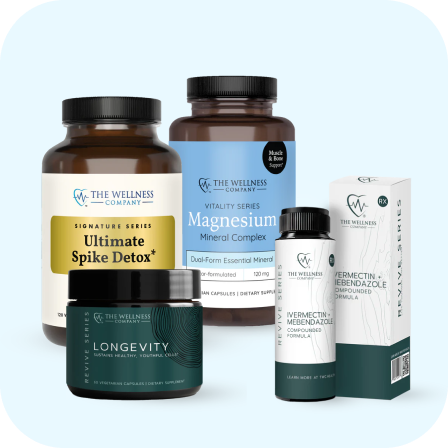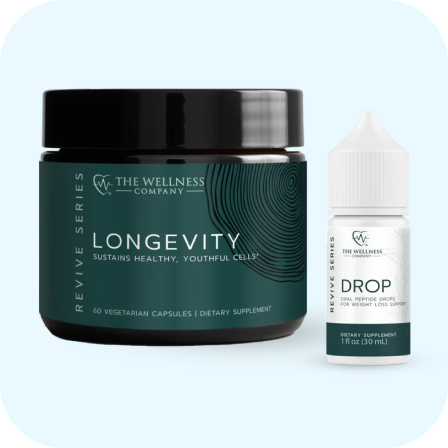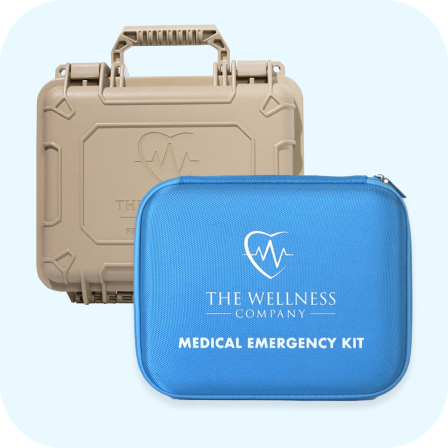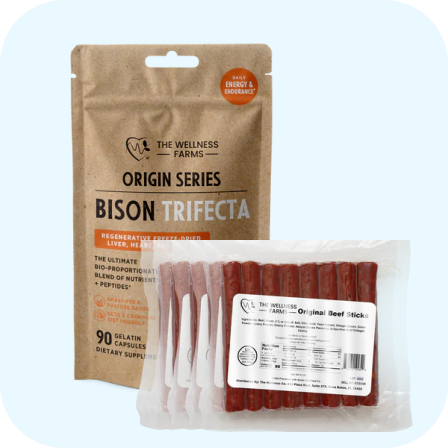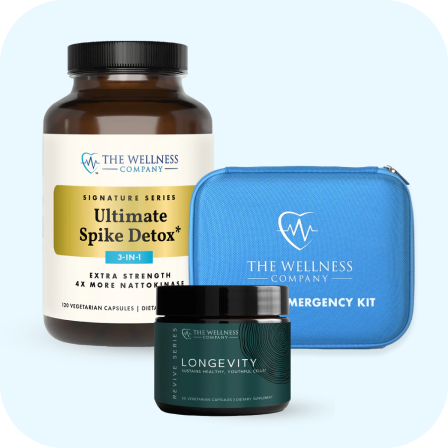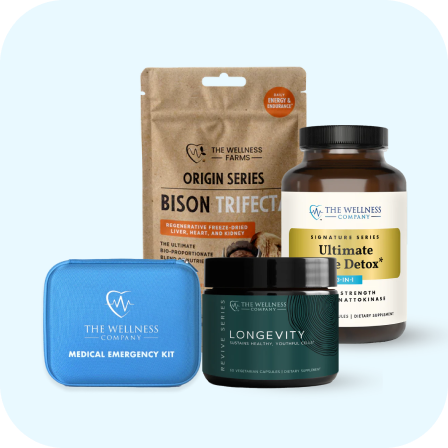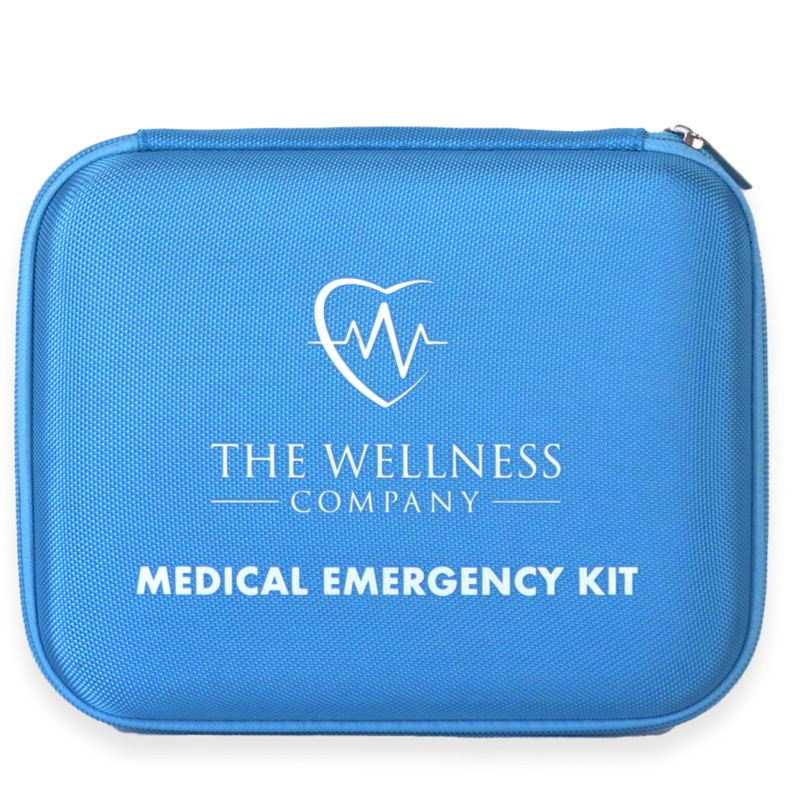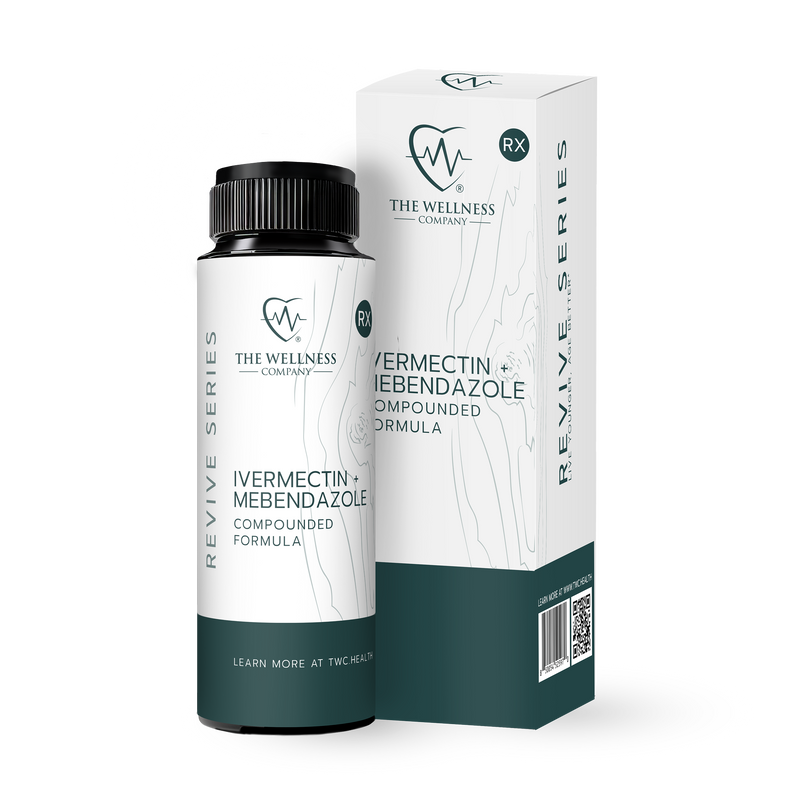Why Do People Take CoQ10?

Coenzyme Q10 (CoQ10) is a fat-soluble, vitamin-like antioxidant that plays a vital role in converting food into energy, and protects our cells from damage associated with exposure to toxic free radicals. CoQ10 can be obtained through diet or supplementation and is a valuable addition to the supplement regime of anyone who wants to enhance their overall health.
The Wellness Company’s specific CoQ10 product combines CoQ10 with an antioxidant called Pyrroloquinoline Quinone (PQQ). While CoQ10 optimizes mitochondrial function, PQQ activates genes that govern mitochondrial reproduction, protection, and repair. By combining the two ingredients, our supplement gives you the best chance of leveraging the power of CoQ10 to optimize your metabolic and cardiovascular health.
Benefits of CoQ10
There are many health benefits associated with CoQ10 supplementation:
Wellbeing
- Supports a healthy immune system
- Decreases inflammation
- Improves mitochondrial health and energy production
Heart Health
- Mitigates the risk of heart disease and stroke
- Improves cardiovascular health and balances cholesterol levels
- Optimizes blood flow and platelet function to help minimize the risk of blood clots
Neurological Health
- Protects against aging and age-related disease such as Alzheimer’s and Parkinson’s
- Improves brain function and memory
Bioavailability
In order to reap all of the benefits of CoQ10, it is essential to take the right amount in a suitable form.
The most common supplemental form of CoQ10 is ubiquinol, which is reported to be the most bioavailable form.
Because CoQ10 is fat-soluble, it is better absorbed when taken with a meal that contains oil or fat.
When it comes to appropriate dosage, please consult with your trusted medical professional to determine what's right for you.
Foods
In addition to taking it in its supplemental form, CoQ10 can also be obtained through diet and is present in many of the following foods:
- Organ meats, such as liver or kidneys
- Oily fish such as sardines and mackerel
- Chicken
- Cauliflower
- Broccoli
- Asparagus
- Nuts
Safety
CoQ10 is generally considered safe when taken at recommended doses under medical supervision.
Side effects are rare but when they do occur, they typically include rash, diarrhea, and other gastrointestinal upset.
The safety of CoQ10 for individuals currently on additional medications (e.g. blood thinners or insulin), pregnant or nursing women, or children has not been strictly established, therefore it is essential to consult with a trusted healthcare source to ensure that CoQ10 is suitable for you.
References
Mantle, D., Heaton, R. A., & Hargreaves, I. P. (2021). Coenzyme Q10 and Immune Function: An Overview. Antioxidants, 10(5), 759. https://doi.org/10.3390/antiox10050759
Gutierrez-Mariscal, F. M., de la Cruz-Ares, S., Torres-Peña, J. D., Alcalá-Diaz, J. F., Yubero-Serrano, E. M., & López-Miranda, J. (2021). Coenzyme Q10 and Cardiovascular Diseases. Antioxidants, 10(6), 906. https://doi.org/10.3390/antiox10060906
Erdoğan, K., Macit, M. S., Şanlier, N. T., & Ustun, Y. (2022). Koenzim Q10: Güncel Genel Bakış. Türk Kadın Sağlığı ve Neonatoloji Dergisi, 4(2), 77–86. https://doi.org/10.46969/ezh.1002286







